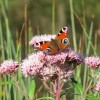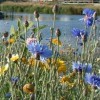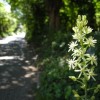Chichester Natural History Society

The Chichester Natural History Society, Chi Nats for short, is a friendly group of local people with a shared interest in all aspects of wildlife, who have been studying and recording all branches of natural history for over 50 years. We do this in an entertaining manner and, in cooperation with other like-minded groups, help conserve the flora and fauna of Sussex. Members of the Society share a common interest in natural history and while some are experts in particular wildlife fields, others are newcomers to the subject. New members are always welcome - contact Chi Nats for details.
Please follow this link to find out more about Chichester Natural History Society
And this link to find out about Chi Nats Events:
Environment

The Manhood Peninsula Partnership was formed in recognition of the challenges the peninsula faces as a result of climate change and the increasing demands on its environment. By recognising the different issues the area faces, its assets and possibilities, and by valuing its distinct and almost unique character on the south coast, the MPP hopes to create opportunities and... Read More»
Nature and Conservation

The peninsula contains several internationally important nature conservation areas (see wildlife page). Extensive consultation took place to examine how the environmental character of the Manhood could be enhanced by the Medmerry managed realignment scheme and how it could benefit the local population, through sensitive management of habitat and tourism. The scheme has been successfully completed and is now managed... Read More»
Sustainability

Sustainability is just one word and yet there are over 300 definitions. In 1987, the World Commission on Environment and Development produced the best known definition of sustainability – “meeting the needs of the present without compromising the ability of future generations to meet their own needs.” The findings from this report became known as the Brundtland Report, also known... Read More»